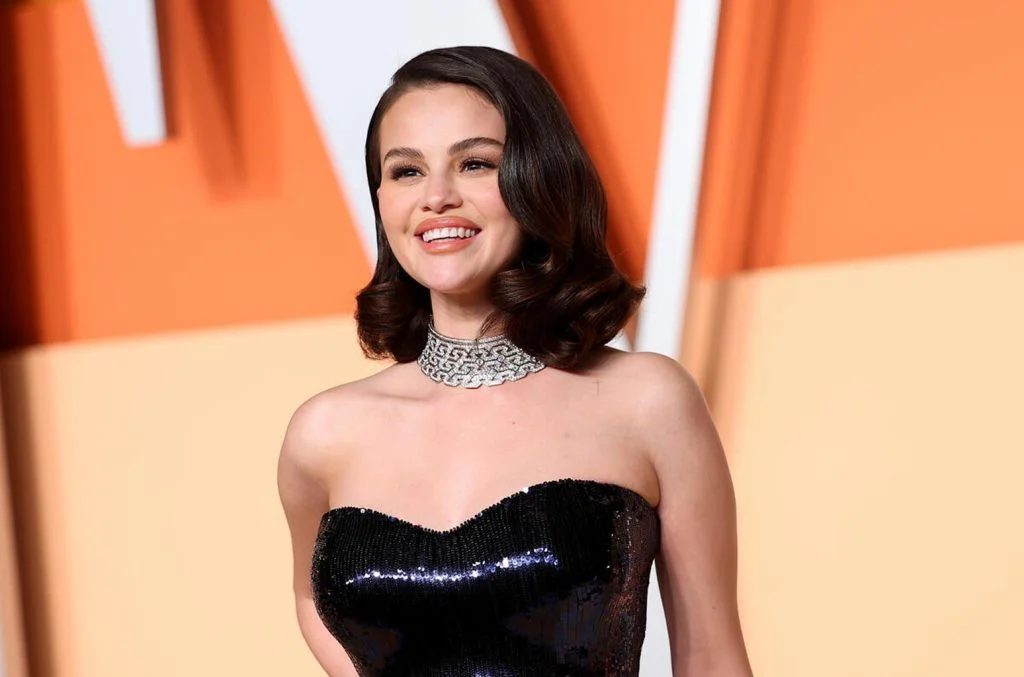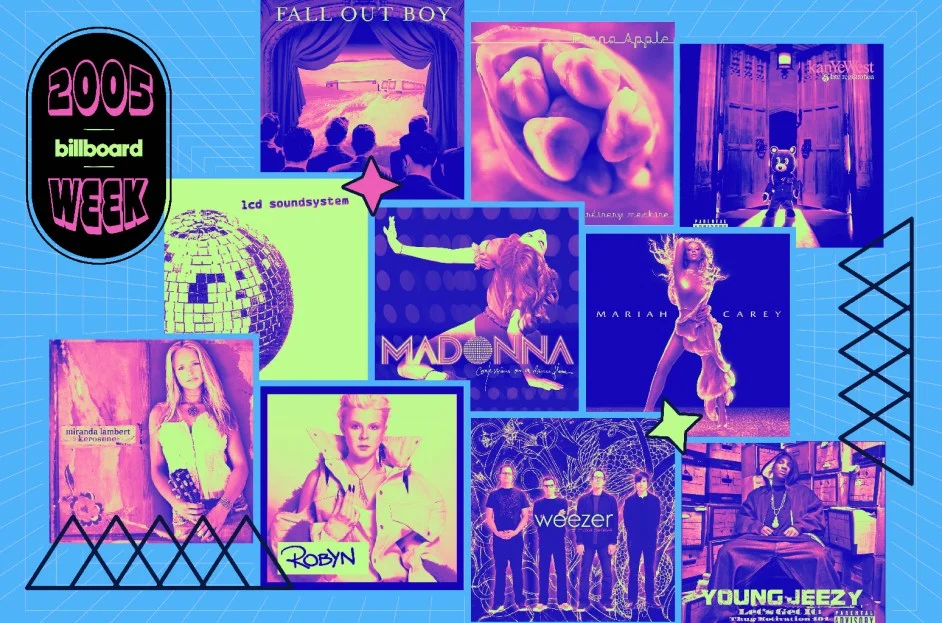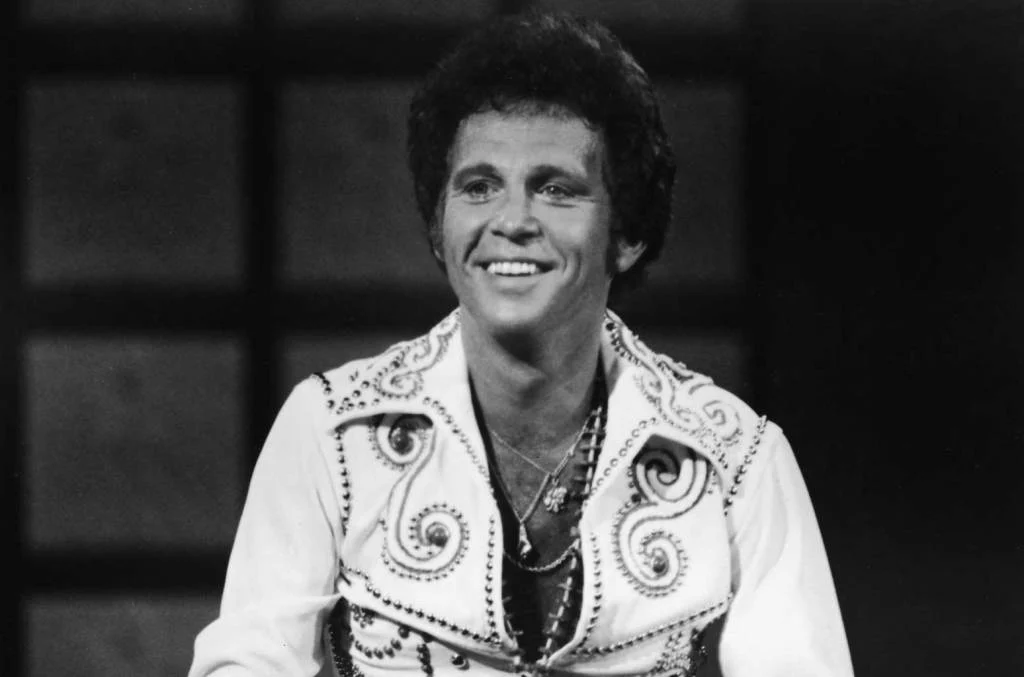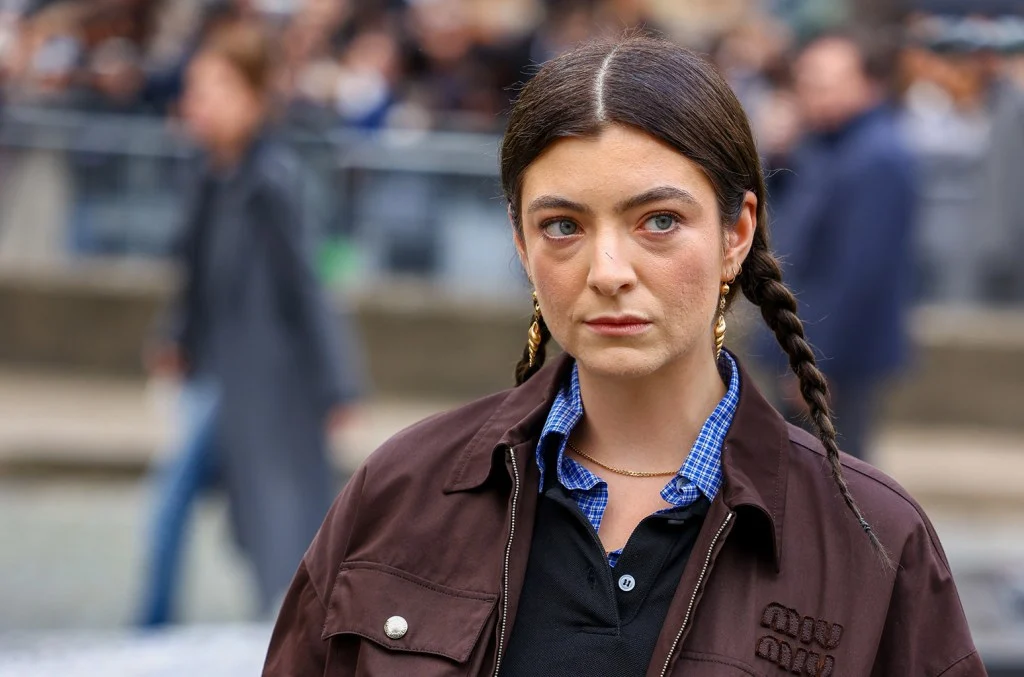Pop
Page: 35
“My family lived in an American Idol household,” says Amanda Ibanez, who goes by Kiddo A.I.; specifically, Adam Lambert was the contestant who inspired her to pursue music. “I would get in front of the TV and sing and my brothers would make fun of me.” But her mother believed in her and encouraged her to get involved with a local church youth group, in which she would write songs and perform. The Miami native, now 28, began self-releasing her music as a teenager, but calls her career a “really slow climb.” A decade in, after meeting hit-maker JKash (Charlie Puth, Morgan Wallen), she started connecting with Los Angeles-based songwriters — and even crossed paths with Max Martin at one point.
Kiddo’s “zero to 100” moment came three years ago, when she worked with Selena Gomez on Rema’s “Calm Down” remix, which hit No. 3 on the Billboard Hot 100. “I used to watch her as a kid on Wizards of Waverly Place, so it was very full circle,” she says. That moment encouraged Kiddo to home in on songwriting for other artists instead of herself — “It’s less invasive,” she says with a laugh. Since then, she has worked on a number of pop hits, including several songs on Gomez and Benny Blanco’s collaborative album, I Said I Love You First, Le Sserafim’s “Crazy” and Tyla’s “Back to You.”
Trending on Billboard
Benny Blanco and Selena Gomez, “Sunset Blvd”
“It really came out of nowhere. I think Benny or [songwriter] Michael Pollack was playing the keys, and we all just started singing this hook melody,” Kiddo recalls of one of the standout songs on I Said I Love You First, which debuted at No. 1 on Top Album Sales. “I don’t remember who said ‘Sunset Blvd,’ but it just made so much sense because then Benny and Selena were like, ‘Wait, that’s where we had our first date.’ It was great to be able to help them say what they wanted to say. We wrote it in, I think, an hour. It basically wrote itself.”
Jennie, “Like Jennie”
“That was such a crazy day,” Kiddo says of working on one of the fiercer tracks from Blackpink member Jennie’s solo debut album, Ruby. “I went to Diplo’s house and he lives deep in Malibu, so it was an hour drive. I was working with [him and] Tayla Parx for the first time, so I was very nervous because I was such a fan of both of them. When we got there, we went through a couple of different tracks, but nothing made sense. Then Tayla and I were like, ‘We need something hard and just so in-your-face. This is Jennie’s song, right? So let’s make a song called “Like Jennie.” ’ Jennie freaked out. She loved it.”
Lisa, “Chill”
Kiddo worked on another Blackpink member’s solo debut album as well: Lisa’s Alter Ego. As she recalls, “I wrote [this one] with Ali Tamposi and John Byron. We actually came up with the hook before the session, and it just came so naturally.” She says that while Tamposi devised the title, they worked together on a couple of hook ideas before Kiddo had to go out of town. “Ali worked with Lisa to finish it, and it came out great. It’s one of my favorites on the album.”
This story appears in the April 19, 2025, issue of Billboard.
Lana Del Rey fans have received a fresh taste of her new era, with “Bluebird” arriving as the latest preview of her forthcoming record.
Dropping just a week after “Henry, Come On” gave fans their first insight of what to expect from Del Rey’s self-described “country” record, “Bluebird” has ostensibly further confirmed that her sonic shift won’t be one steeped in the standard trappings of a country record.
Much like its predecessor, “Bluebird” is another soaring piece of emotional introspection from Del Rey, as she pairs softly-plucked acoustic guitars with stirring strings and her trademark reverb-laden vocals. Written alongside Luke Laird, and featuring production from Drew Erickson, it’s a dream team of country and folk at play, and provides further indication that Del Rey’s upcoming record is set to be another high point of her career.
Explore
Explore
See latest videos, charts and news
See latest videos, charts and news
Currently, however, it’s unclear just when that new record will arrive – or what fans will be specifically asking for at record stores. Initially teased under the name Lasso in early 2024 and given a September release date, the 13-track record was later given a fresh moniker by way of The Right Person Will Stay and an updated release date of May 10.
Trending on Billboard
Following the release of “Henry, Come On,” Del Rey has since told fans her forthcoming 10th album is once again subject to a sense of mystery. “You know it’s not going to come on time, right?” she explained on April 11. “Should I even tell you that the name changed again? Should I tell you that now, while you’re so happy that you even have a song? Yeah, maybe I’ll wait.”
A late album is nothing new for the beloved singer, as her three most recent projects — Did You Know That There’s a Tunnel Under Ocean Blvd, Chemtrails Over the Country Club and Blue Banisters — were all delayed for various reasons.
Del Rey is currently scheduled to perform at Stagecoach on April 25, with a series of dates slated to follow across the U.K. throughout June and July. She’ll return to the U.S. in the summer for a performance at Iowa’s Hinterland Music Festival on Aug. 3.
Listen to “Bluebird” below:
04/17/2025
The non-singles worth remembering from our favorite albums of 20 years ago.
04/17/2025
BTS‘ Jin announced the dates for his first-ever solo tour on Thursday (April 17), the #RUNSEOKJIN_EP.TOUR. The outing that incorporates the singer’s full given name (Kim Seok-jin) will hit nine cities around the globe for two nights each, kicking off with a double-down at the Goyang Auxiliary Stadium in Goyang, South Korea on June 28 […]
At the beginning of the year, Gracie Abrams found herself in a rare bind. For one of the first times in her life, she says, “I felt like I had nothing to say.” The 25-year-old musician had scheduled a week to spend at Long Pond Studio working on new music with her longtime collaborator, Aaron […]
Haim are coming home. The Los Angeles sister trio announced two surprise hometown shows happening next week on April 23 and 24 — their first live performances in nearly two years. Explore Explore See latest videos, charts and news See latest videos, charts and news “This is for everyone who’s been there since day one.. […]

Selena Gomez will receive the 2025 Woman of the Year award at the annual Billboard Latin Women in Music event, Billboard and Telemundo announced earlier Wednesday (April 16). The two-hour special, set to be held in Miami, will air April 24 exclusively on Telemundo.
Gomez was named Woman of the Year at the all-genre Billboard Women in Music event in 2017. She’s the second woman to take top honors at both shows, following Karol G.
Gomez has had a very good year. On Feb. 23, she won her first Screen Actors Guild Award as a cast member of Only Murders in the Building, which was voted outstanding performance by an ensemble in a comedy series.
Trending on Billboard
The multi-media, multi-genre superstar has received two Grammy nominations (a surprisingly low tally for someone who has done quality work over many years) and four Primetime Emmy nods for Only Murders in the Building (one for outstanding lead actress in a comedy series, three for outstanding comedy series, as an executive producer.)
Gomez first hit the Billboard Hot 100 in January 2009 with “Tell Me Something I Don’t Know” from the movie Another Cinderella Story, in which she starred with Drew Seeley. Gomez has landed 45 Hot 100 hits, including four so far in 2025 from a collaborative album with fiancé benny blanco.
Billboard statisticians sifted through Gomez’s 45 Hot 100 hits to determine the 20 biggest. They include nine strictly solo hits; four hits with her early group Selena Gomez & the Scene; and seven collabs with an impressively wide range of artists – Rema, A$AP Rocky, Zedd, Kygo, DJ Snake, Charlie Puth and Marshmello.
We listed Gomez’s 20 biggest hits in alphabetical order. Now we’re turning it over to you to choose your favorite from this list. Vote!
(Here’s the formula for how we arrived at this list: Selena Gomez’s Biggest Billboard Hot 100 Hits ranking is based on weekly performance on the Hot 100 through the charts dated April 19, 2025. Songs are ranked based on an inverse point system, with weeks at No. 1 earning the greatest value and weeks at lower spots earning the least. Due to changes in chart methodology over the years, eras are weighted differently to account for chart turnover rates during various periods.)
Vote here or below.
Bobby Vinton turns 90 today, having made his mark on the Billboard charts over the years. The singer, who gained the nickname “The Polish Prince,” had four No. 1 hits on the Billboard Hot 100 and three top 10 albums on the Billboard 200. Vinton holds a special footnote in pop culture history: He had […]
Big things are coming from Lorde. The singer who disappears into the hedges like Homer Simpson when she is off-cycle peeked her head back out again on Tuesday (April 15) when she sent a three-minute audio message to fans via WhatsApp in which she teased that news is coming.
Describing the feeling of returning to the stage over the weekend at Coachella — where she hopped up for a surprise appearance on the “Girl So Confusing” remix during Charli XCX’s set — Lorde said she reveled in the golden hour glow. “I can feel all that I have shed to be able to be in this the way I am right now… I had this little taste. Fifteen seconds. I could feel it behind me,” she said of the feeling of walking to the main stage at dusk in Indio and thinking about all the Coachellas she’s been to over the past 12 years.
During her appearance at Coachella, Charli helped amp up the hype, shouting “Lorde summer 2025!”
Trending on Billboard
“I felt so real and so solid. I can just feel all that I have shed to be able to be in this the way I am right now. I was like, ‘It’s dusk, in the desert, enjoy it b–ch.’ I just wanted to say hi because everything is about to change,” Lorde said in the voice note. “These are the last moments where it’s just us. Which is crazy. But so right. I’m so ready.”
The singer signed off by thanking her fans for their patience and assuring them that she could feel their presence when she was on stage.
Lorde has been slowly teasing her next era over the past year, most recently with a snippet of an unreleased song on TikTok on April 9 in the first taste of her upcoming as-yet-untitled fourth album. In the brief clip, Lorde filmed herself walking through Washington Square Park in New York City as she listened to the track. “Since I was 17, I gave you everything/ Now we wake from a dream, well baby, what was that?/ What was that?” she sang over a mid-tempo dance beat and ethereal synths.
Last July, she shared a micro snippet of an unreleased song with the message “Will be back in touch,” followed the next month by confirmation from producer Jim-E Stack that they were working together via a photo of the singer staring intently at her laptop. That same month, she wiped all of her social accounts, amping up fan speculation that LP4 was on the way.
Her most recent album was 2021’s Solar Power, which reached No. 5 on the Billboard 200 album chart.
Listen to Lorde’s message below.
04/15/2025
Our staff’s favorite songs from a year that confirmed that hip-hop and R&B were now at top 40’s center, but also had plenty of great rock, country and dance-pop to go around.
By 
Rania Aniftos, Katie Atkinson, Katie Bain, Eric Renner Brown, Anna Chan, Hannah Dailey, Stephen Daw, Kyle Denis, Griselda Flores, Paul Grein, Jason Lipshutz, Joe Lynch, Heran Mamo, Rebecca Milzoff, Taylor Mims, Gail Mitchell, Melinda Newman, Isabela Raygoza, Kristin Robinson, Jessica Roiz, Dan Rys, Michael Saponara, Andrew Unterberger, Christine Werthman, Kristen Wisneski
04/15/2025

 State Champ Radio
State Champ Radio 








